Death toll from Italian quake rises
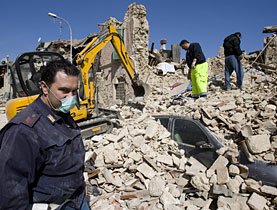
At least 200 people have died and 1,500 have been injured in the earthquake that hit Italy in the early hours of Monday.
The Swiss authorities have offered help with rescue work and have said Switzerland is “deeply saddened” by the tragedy in a neighbouring country.
The Swiss Red Cross has sent 200 tents to help the estimated 50,000 people who have been left homeless.
Swiss President Hans-Rudolf Merz sent a telegram of condolence to his Italian counterpart, Giorgio Napolitano, while Foreign Minister Micheline Calmy-Rey also expressed her condolences to her Italian counterpart, Franco Frattini.
The Italy correspondent for Swiss television, Gianluca Galgani, who has been travelling around the Abruzzo region affected by the quake of a magnitude of 5.8, said that practically everyone he saw was missing someone in the aftermath.
He also confirmed that there was heavy criticism that construction companies had not stuck to building regulations, particularly in the town of L’Aquila, hardest hit by the quake.
“When I look around L’Aquila it is justified [comment]. Practically every house has been damaged,” he said in Tuesday’s edition of the 20 Minuten newspaper.
Warning
Galgani also confirmed that a seismologist had warned of such a possible large earthquake in the area.
“The government appears in a bad light because it did not react to the warning,” he said. “No one here expects that quakes can be accurately predicted but they do expect some preparedness.”
The director of the Swiss Seismological Service in Zurich, Domenico Giardini, told swissinfo that most of the buildings were constructed before obligatory anti-earthquake norms came into force.
“However, it must be noted that public buildings such as hospitals and schools were still badly damaged. More than a third of the 60,000 schools that were inspected in Italy urgently need an overhaul,” he commented.
The Swiss Red Cross in Bern sent 200 tents to its Italian counterpart on Monday evening. The tents are equipped with beds, blankets and heating and can house around 1,000 people.
The Swiss government’s humanitarian division was ready to send rescuers and materials to the affected area if needed. But although the Italian authorities thanked Switzerland for its offer, they indicated that they did not need international assistance.
The Swiss Disaster Dog Association, which trains rescue dogs to search for buried people in rubble and has wide experience in natural disasters, said it regretted the decision.
Swiss protection
Last week, the Swiss government said that people in Switzerland were not sufficiently protected against earthquakes.
It had therefore decided to give further support to the programme of damage limitation measures, and help the cantons and communes on the technical level.
There are anti-construction norms in Switzerland but they are only obligatory for federal buildings. Only two cantons, Basel City and Valais, had adopted mandatory norms for non-federal buildings.
The likelihood of a major earthquake in Switzerland is considered unlikely.
“But if one should happen like that in Abruzzo, which cannot be excluded, buildings will also collapse here,” Giardini said.
“I am surprised to see that in a country like Switzerland, in which everything is insured, there is no obligatory insurance or construction code against quakes.”
swissinfo with agencies
The regions most prone to earthquake activity in Switzerland are Valais, the Basel region, central Switzerland, the Engadine and the Rhine valley near St Gallen.
Earthquakes can give rise to rock slides, rockfalls, landslides and ground liquefaction.
On an international scale, the threat posed by earthquakes in Switzerland is moderate to average. Most earthquakes are so weak that they are barely perceptible. Statistically, a force 5 earthquake is expected in Switzerland every ten years, a force 6 earthquake every 100 years and a force 7 earthquake every 1,000 years.
But as Switzerland has a high settlement density and a high value of material assets, the damage potential is extensive. Thus, of all natural hazards, earthquakes pose the greatest risk in Switzerland.
(Source: Federal Environment Office)
Swiss organisations have begun collecting donations for victims of the earthquake in Italy.
A joint fund for victims is being run by Swiss Solidarity and Caritas. Swiss Solidarity said that although Rome had turned down international aid offers, those made homeless in the quake would require extra support.
Swiss donations will go towards financing one or several as yet unidentified rebuilding projects in the region.
Caritas has donated SFr100,000 ($87,420) for emergency aid and its volunteers are working with local authorities to provide shelter.
In particular, they are helping those who do not have family support or who were already having trouble financially as a result of the economic crisis.
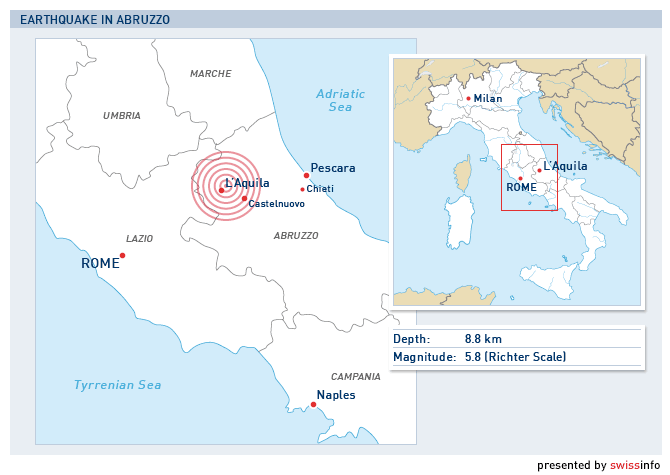

In compliance with the JTI standards
More: SWI swissinfo.ch certified by the Journalism Trust Initiative
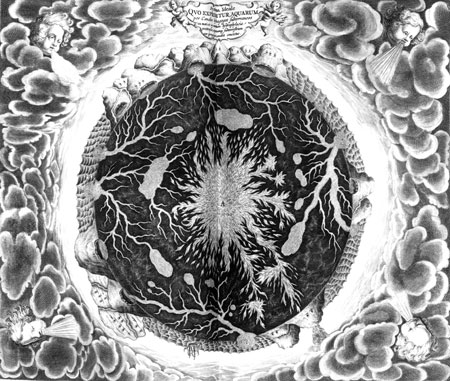
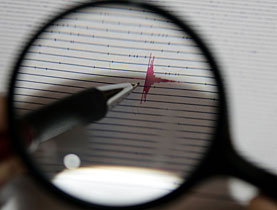
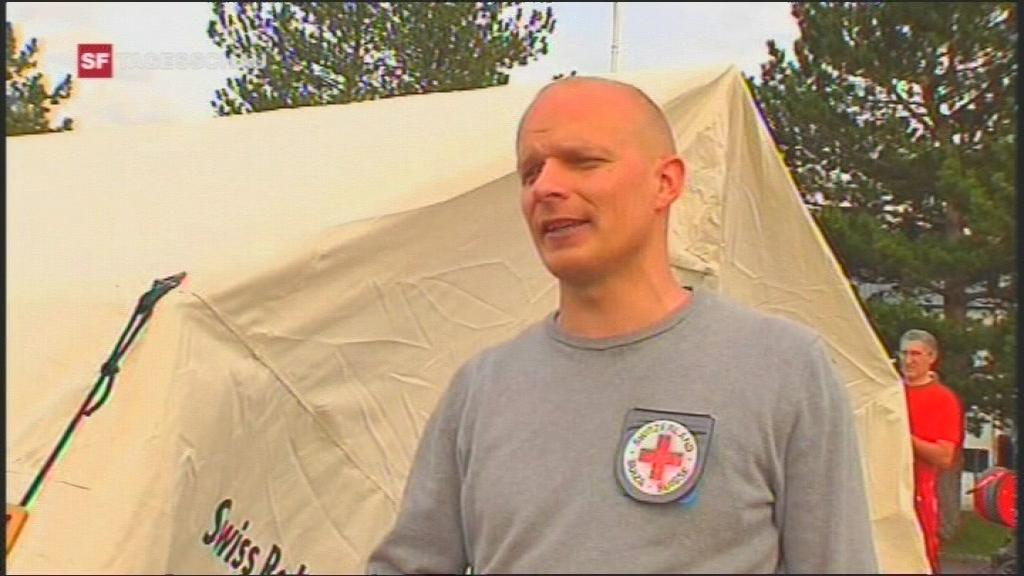
You can find an overview of ongoing debates with our journalists here . Please join us!
If you want to start a conversation about a topic raised in this article or want to report factual errors, email us at english@swissinfo.ch.